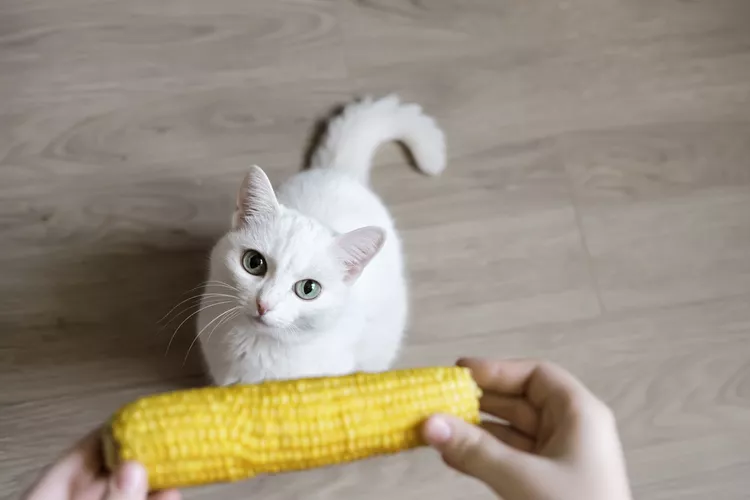
Cats are natural hunters who, when left to their own devices, would choose meat as their primary food source. But if you're reading this, you may be wondering—cat cats eat corn? While the simple answer is “yes”, there are some things you'll want to know first.
Find out more about how to safely share corn with your cat.
You may notice when shopping for cat food that many commercial brands include corn as an ingredient. While some media sources have labeled corn and other grains as “fillers,” the corn that is included in cat foods is processed to be more digestible and to provide nutrients that benefit your cat. It’s a safe source of carbohydrates, essential fatty acids like linoleic acid, and even protein. The idea that corn (or grains) in cat food is bad for cats is not founded in scientific research.
Keep in mind, however, that your cat requires a meat-based diet. Your cat should never be fed a vegan diet. Though corn may be included in your cat’s food, it should not be the main ingredient.
Your cat is an obligate carnivore, which means they require a meat-based diet to get their essential nutrients. In fact, there are some nutrients cats require, like taurine, that they can only get from animal products. Being an obligate carnivore does not mean your cat can't eat grains. It means that meat is essential and should be the majority of your cat's diet.
Because a cat is an obligate carnivore, regularly providing corn to your cat isn’t the most appropriate treat you could share with them. In fact, the corn included in a commercial cat diet is more likely to be beneficial to a cat than the corn you make at home.
If you want to give plain, cooked corn as a treat, you should limit your cat to a few kernels at a time. Corn should not be given to your cat as a regular treat but is usually okay when given rarely. Do not add butter or spices, and if your cat has a chronic health condition like diabetes or food allergies, you need to get this food approved by your veterinarian.
Cats should not eat corn cobs or corn husks. Both items can lead to a gastrointestinal blockage, which may necessitate emergency surgery.
While most cats will be totally fine after eating a few kernels of corn, there are some risks to be aware of.
If you’d like to feed your cat human foods as a treat, consider these alternatives:
It’s a good idea to get any human foods approved by your veterinarian before feeding them to your cat. Keep in mind that treats should not comprise more than 10% of your cat’s daily caloric intake.
Instead of feeding your cat corn as a treat, you can also consider commercial cat treats, which are formulated specifically for cats.
Corn is a safe ingredient in commercial cat foods, and it’s safe as a treat for most cats when given sparingly. The best way to ensure your cat’s nutrition needs are met, whether you’re giving corn as a treat or skipping it, is to provide a balanced meat-based diet formulated for cats.
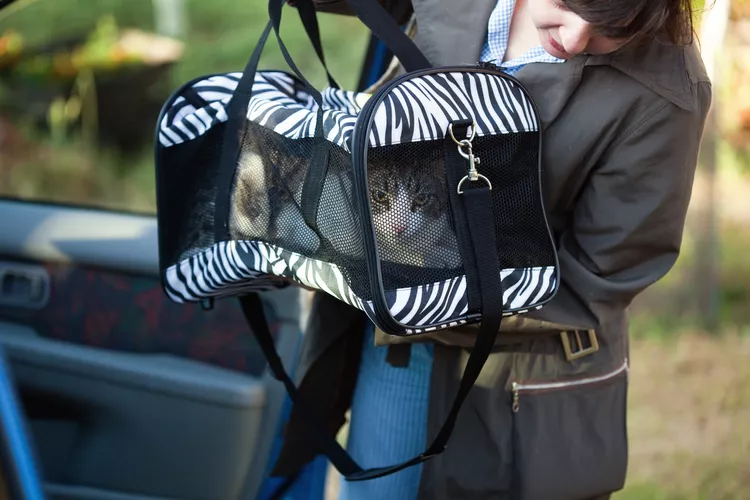
How to Take a Car Trip With Your Cat
Think you can't travel with your cat? Think again! Traveling with your cat just takes a little preparation and planning. Here's how.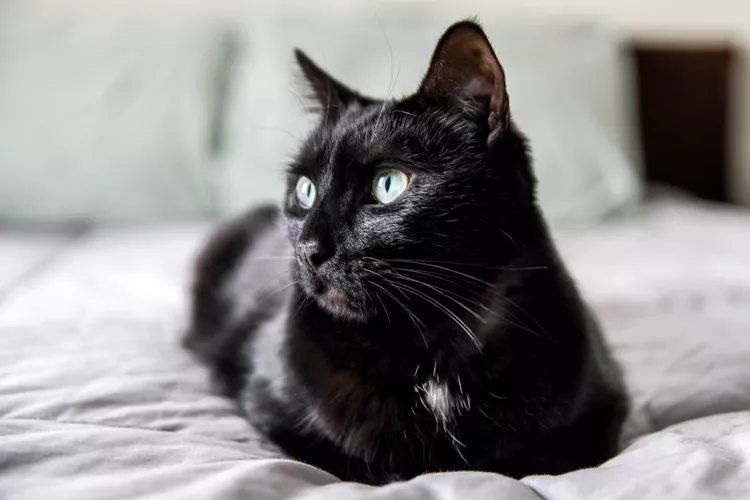
How to Determine Your Cat's Age
Determining the age of an adopted cat is just guesswork, but a vet can look at teeth, sexual maturity, fur coat, and eyes to estimate.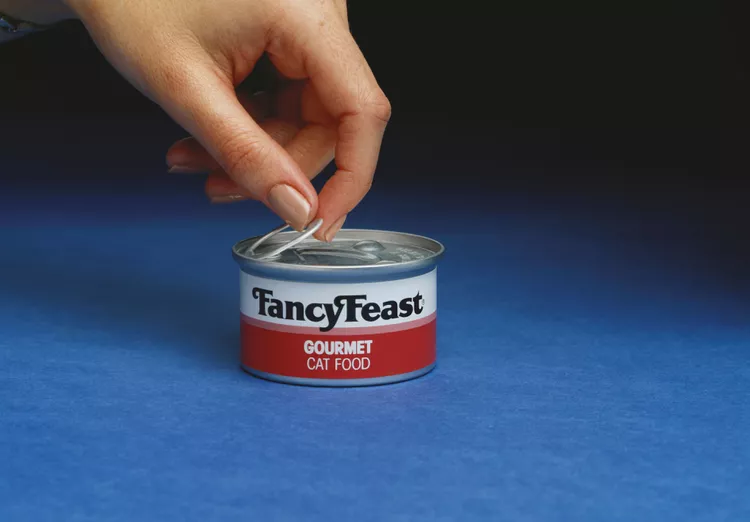
Cat Food Ingredients to Avoid
When checking the nutrition content of cat food, look for ingredients that are not healthy or show it is of poor quality. Avoid these 3 ingredients.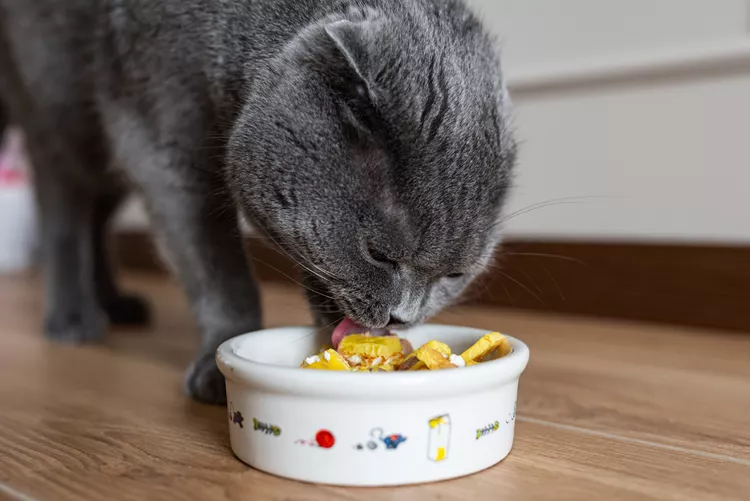
What You Need to Know About Homemade Cat Food
If you want to cook for your cat, make sure to read about the risks associated with homemade diets for cats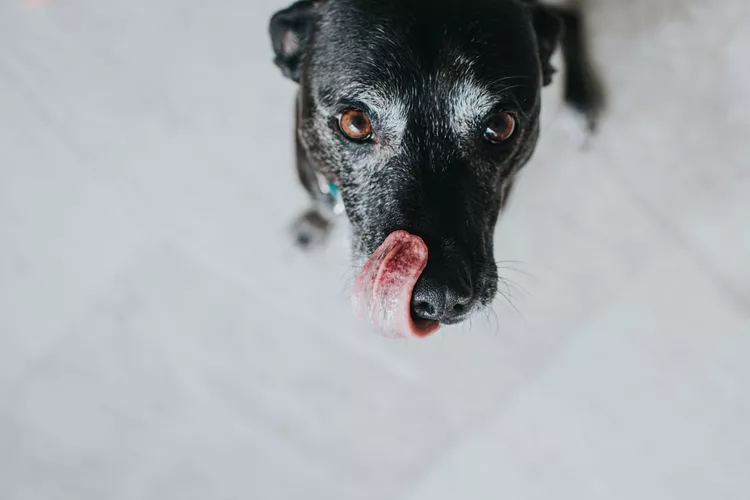
Can Dogs Eat Raw Chicken Feet?
What are the potential health benefits of chicken feet for dogs? What are the risks?
Macadamia Nuts and other Nuts That Are Toxic to Dogs
Find out why macadamia and other nuts are poisonous to dogs, what signs to look for, and what is needed to treat the toxicity.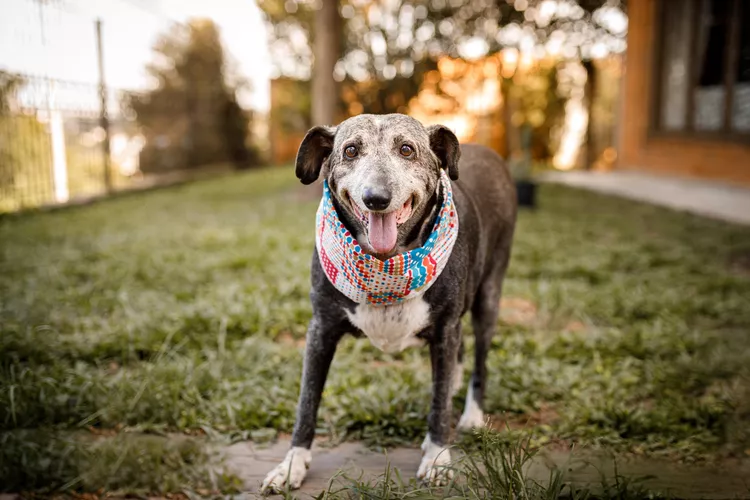
10 Tips for Taking Care of a Senior Dog
Is your dog a senior? Changes to their diet, exercise, and care are required. Here's how to make sure they're living their best and healthiest life.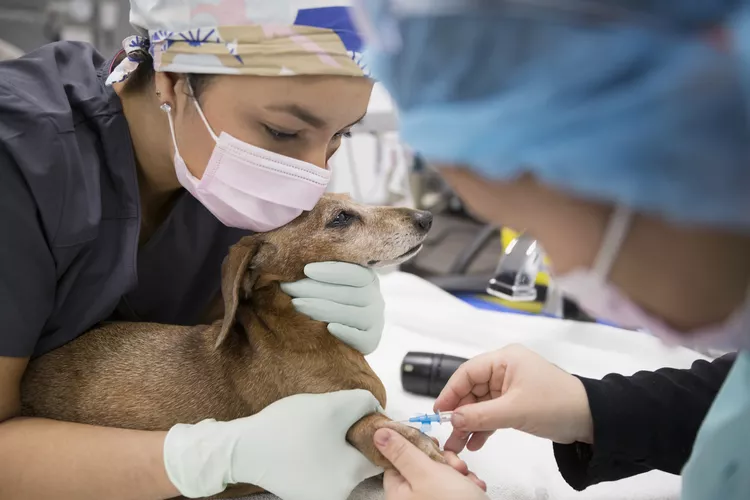
Hookworms in Dogs
Hookworms can make a dog uncomfortable but may also lead to serious blood loss and anemia. Learn the causes, treatment, and prevention.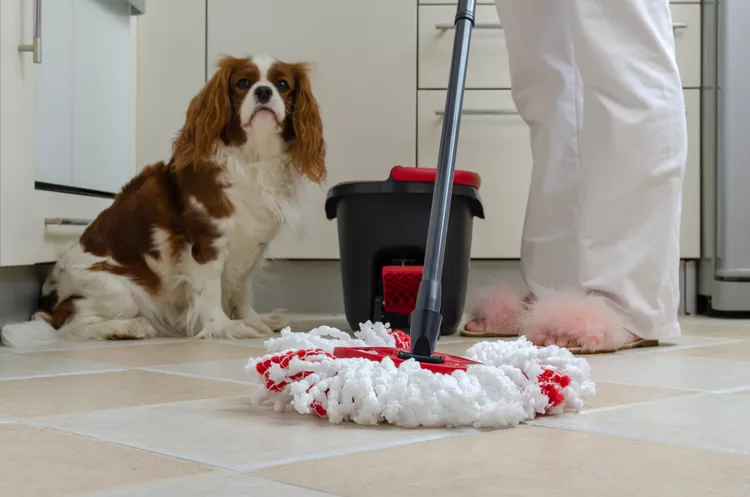
Is Swiffer WetJet Safe to Use Around My Pet?
ASPCA toxicologists deemed Swiffer WetJet to be safe for use around pets, but there are other all-natural floor cleaning options available.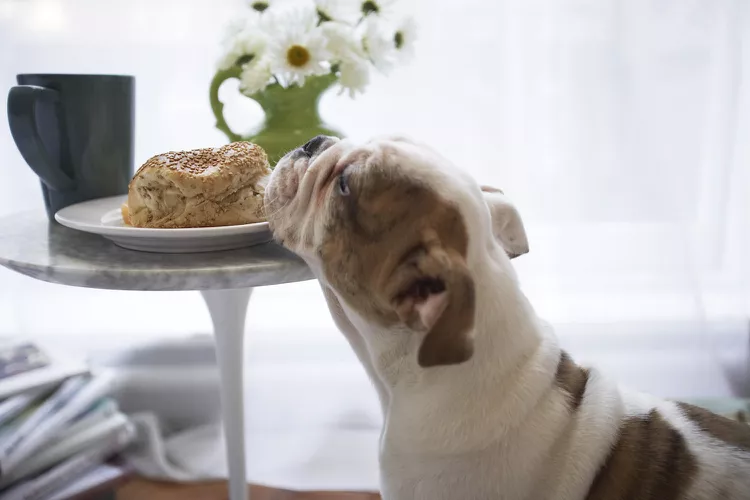
Can Dogs Eat Bread?
Is bread a safe snack for you dog? Are there kinds of bread you should avoid? Learn more about whether it's okay to feed your dog bread.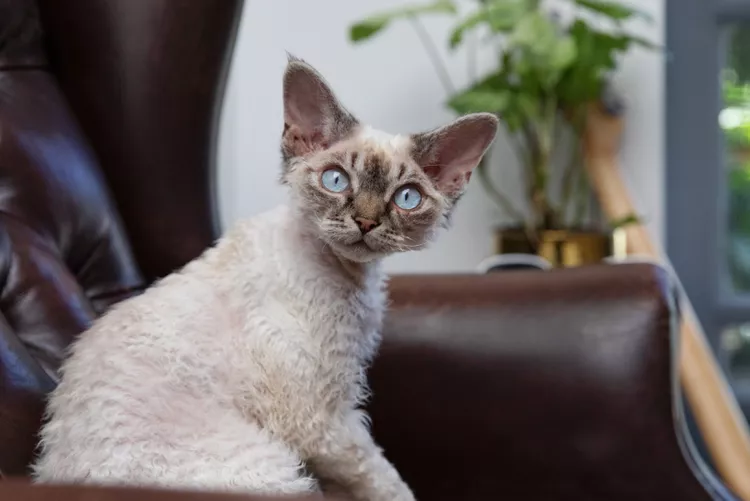
14 Hypoallergenic Cat Breeds for People With Allergies
There are no true hypoallergenic cat breeds. But some, such as the Siamese and Siberian, might be less likely to cause allergies than others.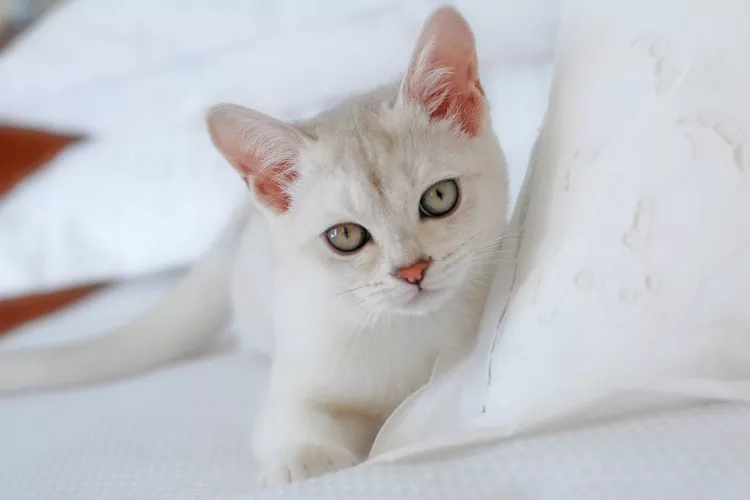
Burmilla: Cat Breed Profile, Characteristics & Care
The playful and social burmilla is one of the newest cat breeds to be officially recognized by the CFA. Learn about burmilla breed.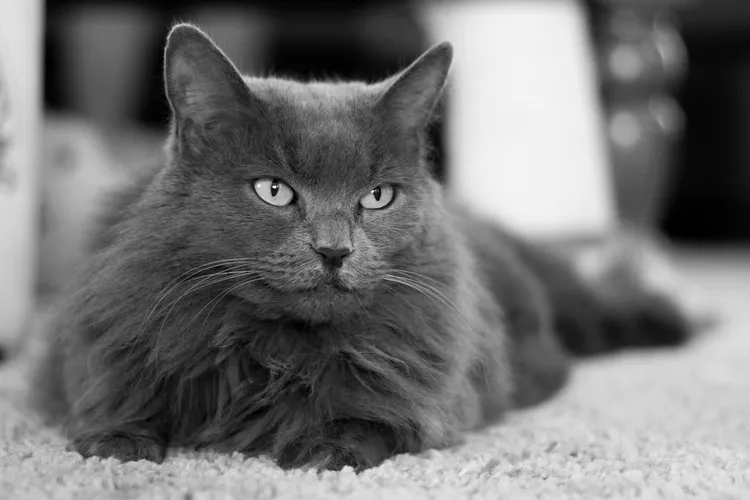
Nebelung: Cat Breed Profile, Characteristics & Care
The Nebelung is a rare breed of domestic cat that’s known for their long gray-blue fur and gorgeous green eyes. Learn about the Nebelung cat breed.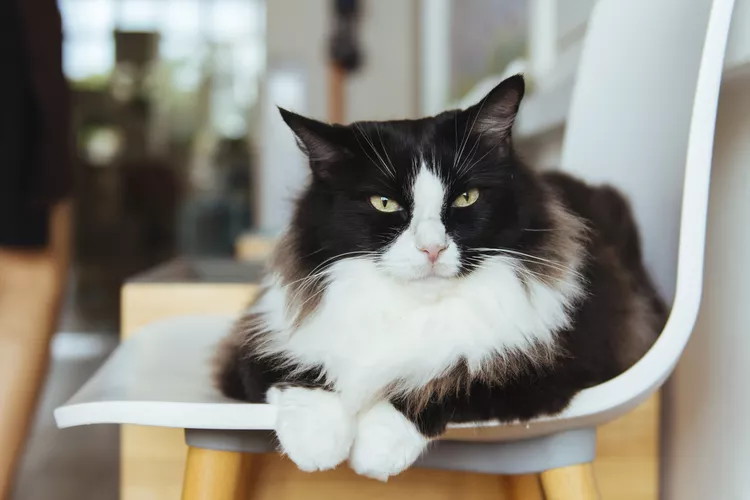
Cymric: Cat Breed Profile, Characteristics & Care
The Cymric, a long-haired Manx, is one of the world's oldest cat breeds. This tailless cat is friendly and playful. Learn about the Cymric breed.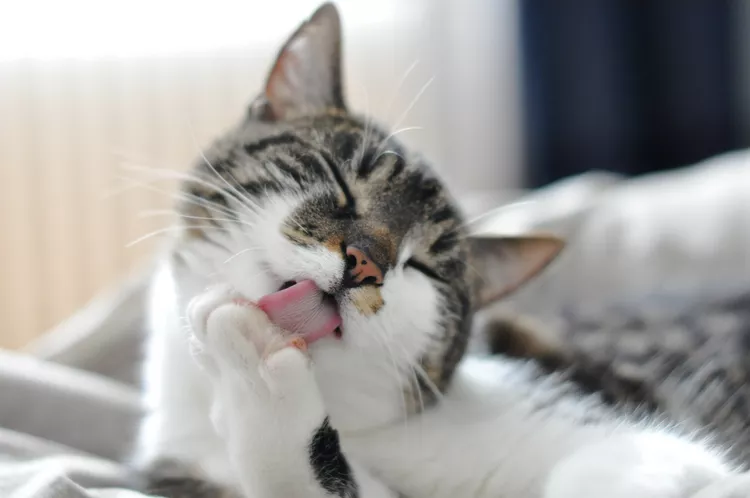
Here's Why Cats Groom Themselves
Learn all about cats' grooming habits: how and why cats groom, including mutual grooming, over-grooming, and displacement grooming!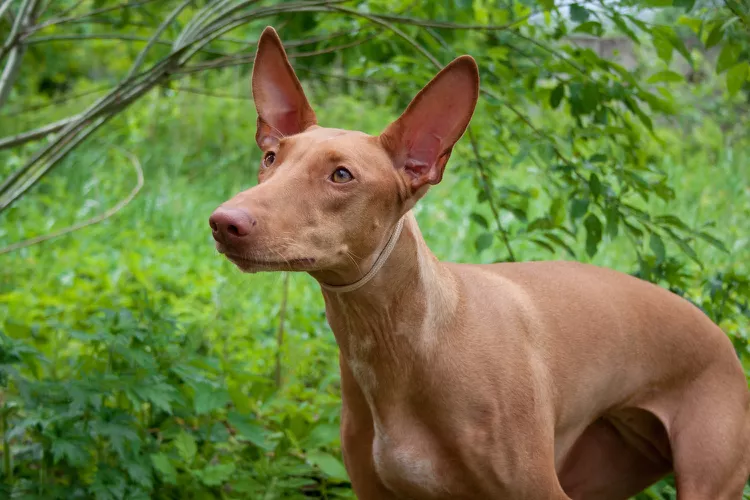
Pharaoh Hound: Dog Breed Characteristics & Care
Learn all about the Pharaoh hound, a sight hound dog breed known for their slim appearance and the ability to blush when excited.
How to Walk Your Dog
Dog walks should be fun for your dog while respecting your community. Learn why walking your dog is important and get essential safety and training tips.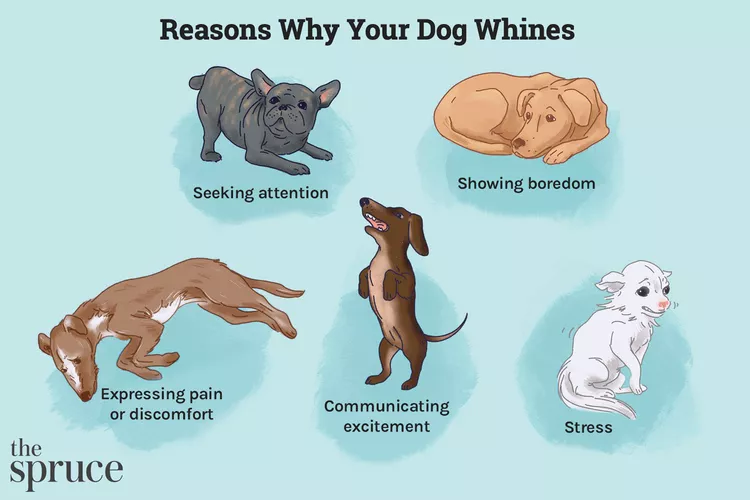
How to Stop Your Dog From Whining
Whining is a natural way for your dog to communicate with you. Explore the reasons dogs whine and how to discourage your dog from whining too much.
How to Stop Your Dog From Barking Excessively
All dogs bark, but excessive barking is a behavior problem. Learn how to help stop excessive barking and prevent it from happening all the time.
How to Train Your Dog to Live With Another Dog
When you add a second dog to your household, it's natural that there will be an adjustment period. Learn how to get two dogs to become acquainted.